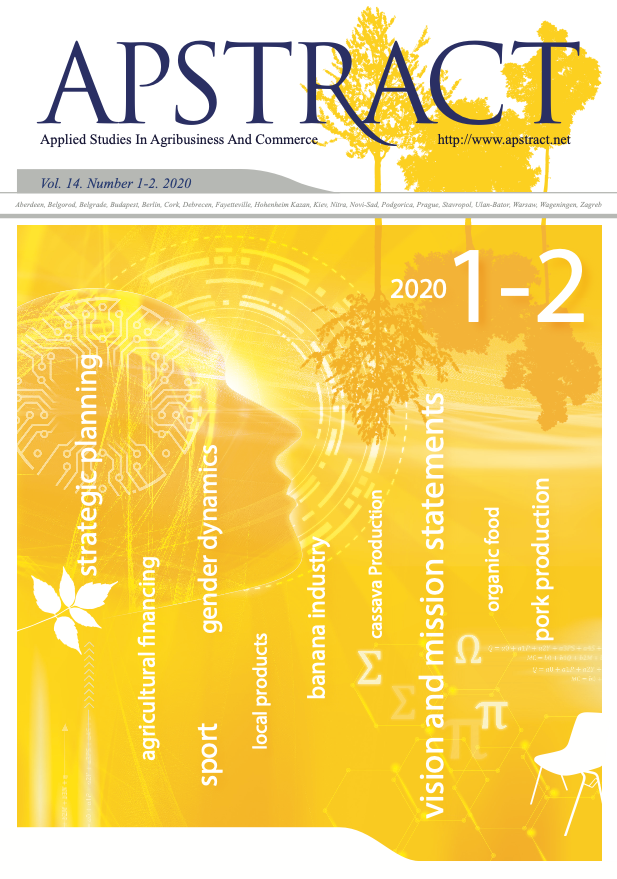Relationships between coping strategies and psychoactive substance use
Author
View
Keywords
License
Copyright (c) 2020 Univesity of Debrecen, Faculty of Economics and Business, Hungary

This work is licensed under a Creative Commons Attribution-NonCommercial 4.0 International License.
How To Cite
Abstract
The study examines the relationship between coping strategies and smoking and alcohol consumption among athletes, recreational athletes and non-athlete individuals.
The factors examined were measured by a validated questionnaire version of Folkman-Lazarus (1980) (Ways of coping) (16 items) and asked about the smoking and alcohol consumption patterns of the respondents. The total sample number was 813 people, of whom 341 were athletes, 292 were recreational and 180 were non-athletes. 54.4% of the sample is female and 45.6% is male. In my research, I focused on mapping intrapersonal coping strategies among athletes, recreational athletes, and the non-athlete individuals, and explored gender differences. Furthermore, how smoking and alcohol consumption appear as a negative coping strategy in the measured sample.
As a method besides descriptive statistics the Kolmogorov-Smirnov test was used to verify normality, and the hypotheses were tested with non-parameterized test (Kruskal-Wallis, and Mann-Whitney).
For coping strategies I found a significant difference among the non-, recreational and competitive athletes, and there is a significant difference between genders as well.
In the case of cognitive restructurings, there was a significant difference in favor of sports and recreational athletes versus non-athletes, while in problem analysis and passive coping I found a significant difference in favor of women compared to men.
Significant differences were also found in the case of psychoactive substance use. Among the three groups, as the intensity of sport increases, the number of smokers decreases. In the case of smoking, a significant difference was found in the coping strategies referring to reduction of the stress in the whole sample. In the case of alcohol consumption, in coping strategies were found significant differences between stress reduction, problem analysis and passive coping.
JEL CODE: M21, O21
ARTICLE IN PRESS!


 https://doi.org/10.19041/APSTRACT/2020/1-2/13
https://doi.org/10.19041/APSTRACT/2020/1-2/13




